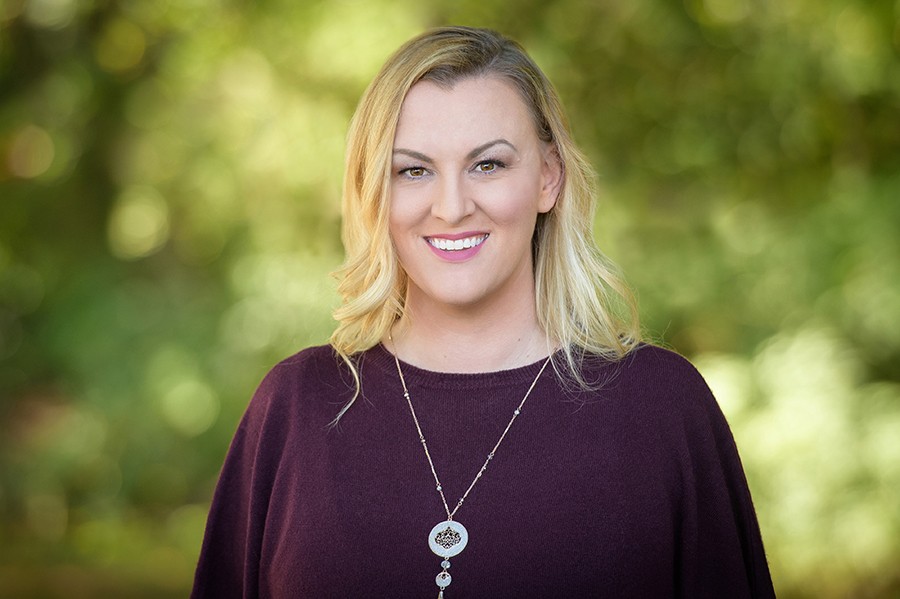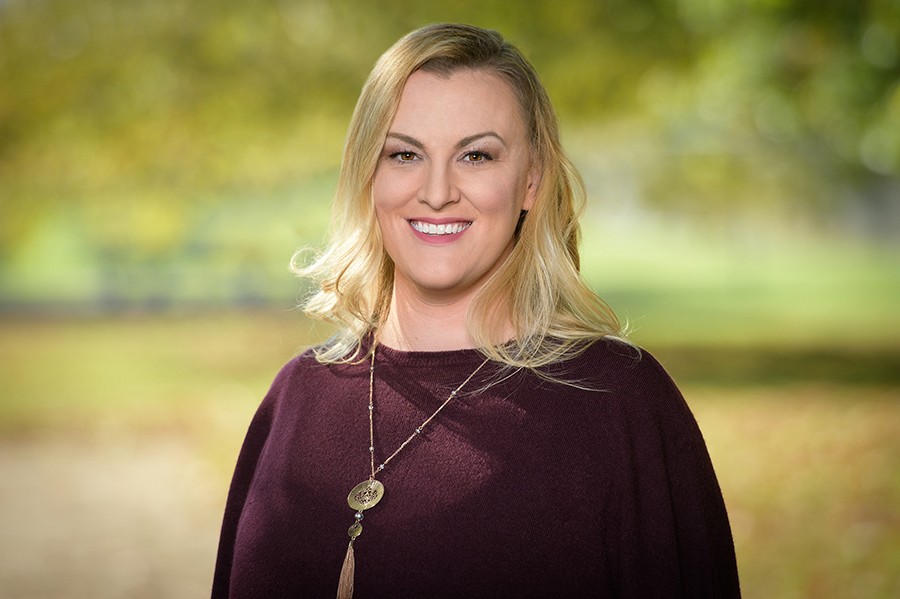We recently connected with Rebecca Toner and have shared our conversation below.
Rebecca, appreciate you joining us today. We’d love to hear the backstory behind a risk you’ve taken – whether big or small, walk us through what it was like and how it ultimately turned out.
I’ve been known to take major risks that felt like they could yield major reward. The first was getting trained in EMDR, which absolutely changed the way I see and understand the world. That led to taking another major risk- getting out of my unfulfilling, unrewarding full-time position at a community mental health agency and into my own private counseling practice- which then blossomed into a thriving group practice within a few months. It was so scary to go from the consistent predictability of a regular paycheck with benefits to everything being on me- retirement, taxes, insurance, figuring out my schedule, credentialing, and billing. Not to mention the marketing and trying to determine my rates! It was so vulnerable and scary making that leap and having so much potential for failure on me, especially because my entire community and family were all rooting for me. But ultimately I knew in my gut that this was the right option for me at the time, and I learned more about myself as a person, therapist, and employer in that moment than I ever have at any other point in my career. It also taught me so much about my own limits, how I experience burnout, and what I need to do to care for myself. If you’re considering making a similar leap, prepare for more emotional vulnerability and intimacy with yourself than you would have ever thought possible. And also recognize that once you have that, the genie does not go back in the bottle and you can communicate your worth so differently in collaboration and networking with others!

Rebecca, before we move on to more of these sorts of questions, can you take some time to bring our readers up to speed on you and what you do?
I’ve been passionate about the mental health field since I was a senior in high school and took an AP Psychology course for college credit. From there, I went to a tiny liberal arts college in the Boston area, where I had professors with all kinds of experience. Because the classes and the school were so small, we got to know one another really well and the professors were extremely invested in my education and encouraging me to to explore all kinds of ways of being in the field. They led me to a wonderful graduate school experience at William James College, where I gained field experience working with kids and families while simultaneously learning about theory and practice in school.
After graduation, it was tough to find employment in my field for over a year because provisional licenses didn’t exist for my degree at the time, and no one would hire an unlicensed clinician. Because I was living in central CT, I wasn’t terribly far from the Springfield, MA area which offered more opportunity for people in my position. I interviewed for a community and hospital-based crisis clinician position, where the interviewer did his very best to try to scare me out of the position and convince me I didn’t want it. It had the opposite effect- everything he said made me want to start immediately. I finally felt connected to and excited about my field again and I spent the next 2.5 years gaining tons of experience in establishing quick rapport, getting strong in my clinical judgment and documentation, and advocating for those in need of higher levels of psychiatric care.
That led me to learn about EMDR therapy- I got trained in it as soon as I could, and it became my obsession. I couldn’t devour enough information and training fast enough, and as soon as I was able and qualified I started providing consultation to others. I became so passionate about troubleshooting some of the mechanics of it, and helping others feel confident in learning to perform this amazing work in a way that felt authentic to them and their rapport with their clients. Now, my entire caseload is full of people with complex, attachment trauma who are re-parenting themselves, healing from the worst experiences they’ve ever had, and challenging the harshest things they have ever believed about themselves. I get to be witness to poignant moments as clients reclaim their power and take charge of who they want to be in the world!
If you could go back in time, do you think you would have chosen a different profession or specialty?
I think if I could go back, I might choose the same profession and specialty because there’s such a deep need for it and there are so many ways to do this work that are interesting and refreshing, so it doesn’t feel like the same cookie cutter approach all the time. I think if I had to change anything about my journey thus far, I would have stayed in solo private practice rather than opening a group practice. I didn’t know enough about what I was getting myself into at the time, or how much it would burn me out and how difficult it would be to find administrative help I could delegate to outside of one or two individuals. It brought so much pressure on me, and then when helping to foster my now-niece while growing a relationship and maintaining my own caseload plus a group practice during COVID- I just had to let the group practice go and instead merged with another practice owner who was also in need of more support and who wanted to grow her practice. It was the perfect match and in hindsight, group practice ownership just wasn’t for me and was a major source of burnout and frustration at a time when I just didn’t have the bandwidth for it. If I’d stayed in solo practice and hadn’t expanded, I think things would have felt at least a little more manageable. I might have had the same career trajectory I have now, but at least it wouldn’t have been so taxing and have taken so much time away from other things outside of work that really needed my attention.
How’d you build such a strong reputation within your market?
I think the main thing that has helped me to build my reputation within my market is being unapologetic, not being afraid to say things that others might disagree with, and being sure I have the specialized training in one or two high-need areas to back up my claims and knowledge. That helps substantially with advocacy, which creates a public image that people can trust. If you’re unapologetic, trustworthy, and knowledgeable in your field, marketing and networking take care of themselves because then you’re making personal connections that matter and feel authentic instead of handing out business cards and trying to be heard above all of the other voices that can drown you out!


